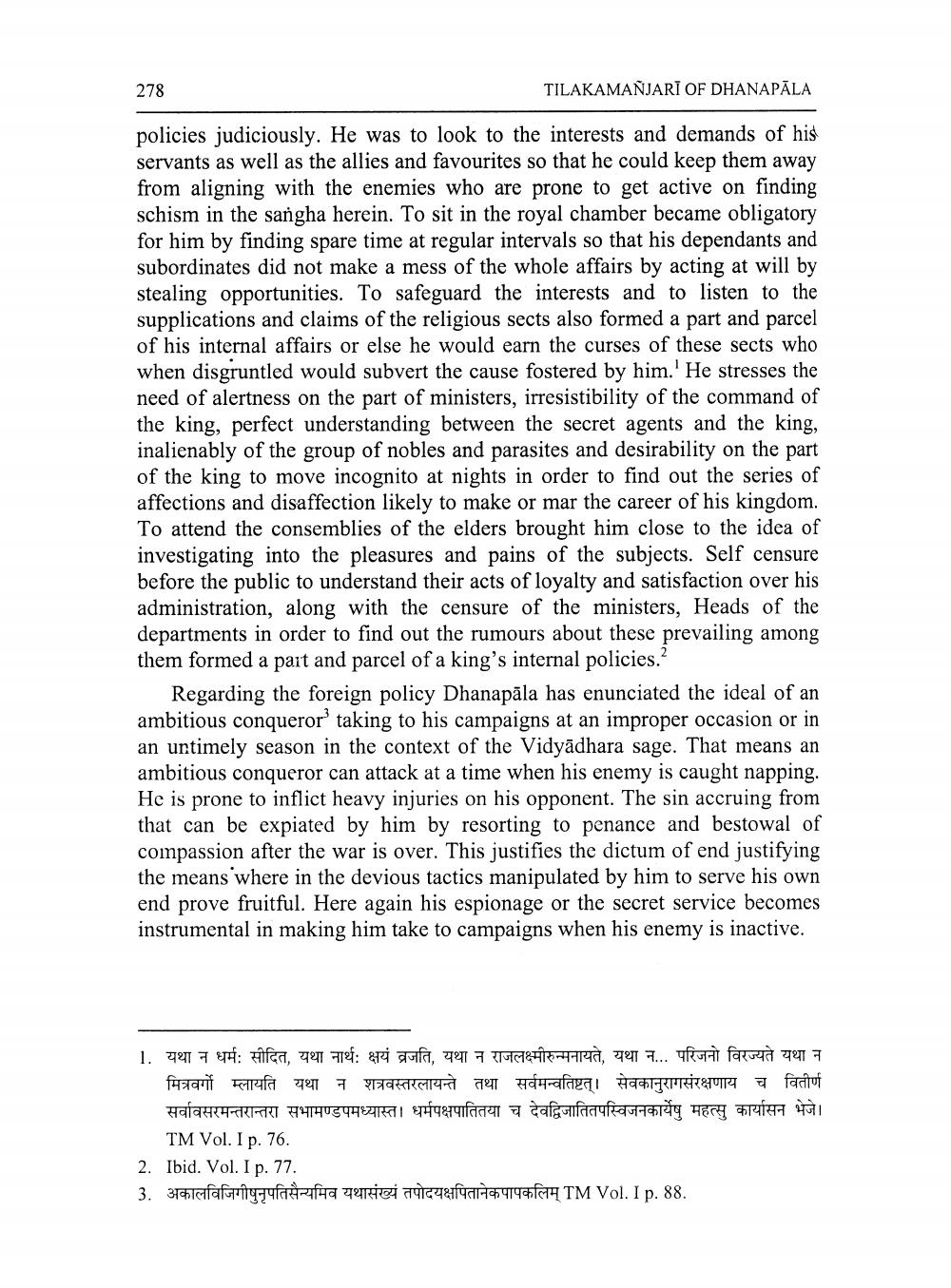________________
278
TILAKAMANJARĪ OF DHANAPĀLA
policies judiciously. He was to look to the interests and demands of his servants as well as the allies and favourites so that he could keep them away from aligning with the enemies who are prone to get active on finding schism in the sangha herein. To sit in the royal chamber became obligatory for him by finding spare time at regular intervals so that his dependants and subordinates did not make a mess of the whole affairs by acting at will by stealing opportunities. To safeguard the interests and to listen to the supplications and claims of the religious sects also formed a part and parcel of his internal affairs or else he would earn the curses of these sects who when disgruntled would subvert the cause fostered by him. He stresses the need of alertness on the part of ministers, irresistibility of the command of the king, perfect understanding between the secret agents and the king, inalienably of the group of nobles and parasites and desirability on the part of the king to move incognito at nights in order to find out the series of affections and disaffection likely to make or mar the career of his kingdom. To attend the consemblies of the elders brought him close to the idea of investigating into the pleasures and pains of the subjects. Self censure before the public to understand their acts of loyalty and satisfaction over his administration, along with the censure of the ministers, Heads of the departments in order to find out the rumours about these prevailing among them formed a part and parcel of a king's internal policies.
Regarding the foreign policy Dhanapāla has enunciated the ideal of an ambitious conqueror taking to his campaigns at an improper occasion or in an untimely season in the context of the Vidyādhara sage. That means an ambitious conqueror can attack at a time when his enemy is caught napping. He is prone to inflict heavy injuries on his opponent. The sin accruing from that can be expiated by him by resorting to penance and bestowal of compassion after the war is over. This justifies the dictum of end justifying the means where in the devious tactics manipulated by him to serve his own end prove fruitful. Here again his espionage or the secret service becomes instrumental in making him take to campaigns when his enemy is inactive.
1. यथा न धर्मः सीदित, यथा नार्थः क्षयं व्रजति, यथा न राजलक्ष्मीरुन्मनायते, यथा न... परिजनो विरज्यते यथा न
मित्रवर्गो म्लायति यथा न शत्रवस्तरलायन्ते तथा सर्वमन्वतिष्टत्। सेवकानुरागसंरक्षणाय च वितीर्ण सर्वावसरमन्तरान्तरा सभामण्डपमध्यास्त। धर्मपक्षपातितया च देवद्विजातितपस्विजनकार्येषु महत्सु कार्यासन भेजे।
TM Vol. I p. 76. 2. Ibid. Vol. I p. 77. 3. 3fafurarapariei 14 919114 TM Vol. I p. 88.




